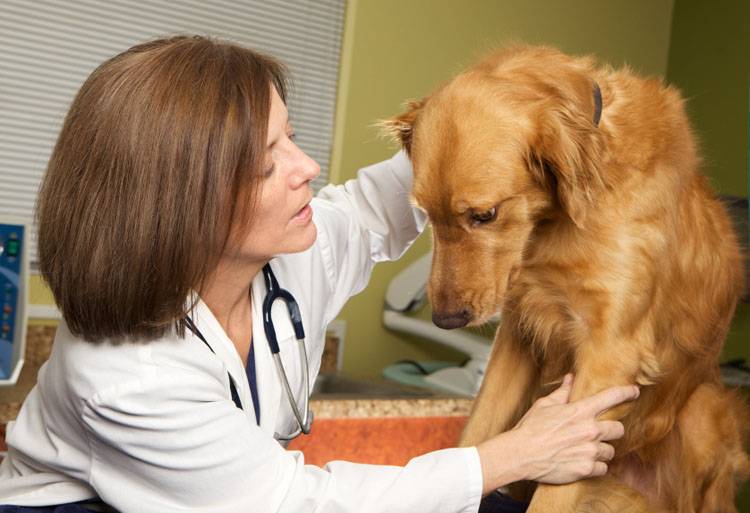Managing Pain in Dogs
The pain dogs experience appears to be similar to the pain humans feel. It was previously believed pets had a high tolerance of pain and that pain kept dogs quiet so they could heal. In addition, it was thought there was no real way to know if a pet was in pain or not. Over the last 10 years, the idea of pain management in dogs has changed. Like humans, pain not only can shorten a dog’s life, but also reduce the quality.
Pain management does not necessarily mean the use of drugs. Like humans, physical therapy, vitamins, weight loss and other lifestyle changes, such as more exercise, can make a difference to lessen pain.
Types and Symptoms of Dog Pain
There are two types of pain including:
- Acute pain: Comes on suddenly due to an infection, surgery or injury. This type of pain usually only lasts until the reason for the pain has been identified and treated.
- Chronic pain: Longer term and can be slower to develop. Old age problems, such as illness, arthritis, cancer and/or bone disease, can lead to chronic pain. Since this type of pain could have developed over time, the dog may have developed a tolerance and learned to live with it.
Symptoms of pain in your dog include: silence, listlessness, whining and crying. Biting or licking at one spot of the body could mean there is a problem as well. Acting out of character, looking for a lot of attention, trouble eating, sleeping or getting comfortable are also signs your dog is in pain.
RELATED: Assessing Your Dog’s Body
Pain Management for Dogs
The most effective way to manage pain is by preventing it before it starts. That may only be possible with elective types of surgery, such as spays, neuters, orthopedic procedures or mass removals. For that type of pain, giving medication would serve as the best pain management.
If you think your dog is in pain, a complete physical will be needed so your veterinarian can figure out what is wrong and give you several options to choose from. A physical exam can include X-rays, blood tests, lab work or even a scan. After that, your veterinarian may ask you about your dog’s appetite, movements, attitude and behavior. It’s important to disclose as much information as you can to help your veterinarian diagnose your pet and provide the best form of treatment.
Types of pain medication include:
- Pills
- Liquids
- Skin Patches
- Gels
Non-steroidal anti-inflammatory medications (NSAIDS) are commonly used for many types of orthopedic pain. For joint health, there are non-pharmaceutical compounds and neutraceuticals. Glucosamine and chondrotin help joint inflammation that is common with old age or joint disease. Keep in mind the side effects and the time needed for each treatment option, including the risks versus the benefits of each option. Alternative pain management, such as massage therapy, holistic medicine and acupuncture, is also an option.
If your dog has had surgery, pain management can help with rapid healing. It is important to follow the veterinarian’s instructions carefully and call if you have any questions or problems. If your pet has been prescribed a pain medication, give it on time and as directed. Keep your pet warm and comfortable plus quiet and relaxed, allowing him to heal with re-injury. Also, keep him from the surgical site, as he’ll lick and/or remove stitches. If needed, a special collar can be obtained from the veterinary hospital. Don’t forget lots of love and attention will go a long way in your pet’s recovery.
Sources:
www.wagsandwhiskers.com
www.healthypet.com/library
You may also like: Post Operative Care for Pets





